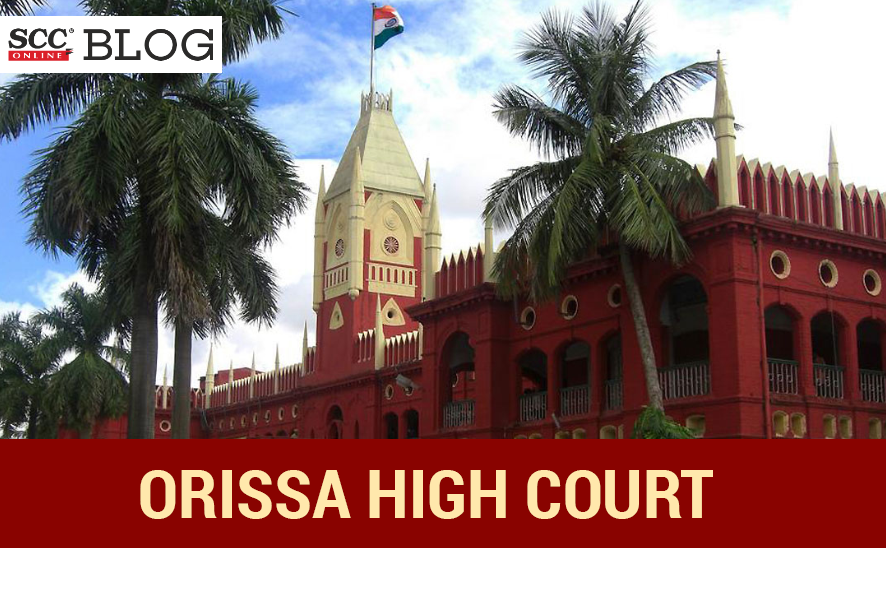Orissa High Court: In an appeal against the Judgment and Order of the Lower Court, wherein it was held that the disputed sale deed was a forged document, the Single- Judge Bench of B.P. Routray, J., allowed the appeal and set aside the Appellate Court’s order and restored the Trial Court’s Judgment. It was also held that the specimen document signature must be undisputed and all parties to the dispute must admit the specimen signature or writing in the base document before comparing the disputed document under Section 73 of the Evidence Act, 1872 (‘Evidence Act’).
Background:
The present appellants were the defendants in the original suit. The lands in dispute were originally belonging to the deceased. The plaintiff’s case was that the father of original defendant and after him the defendants were in forcible possession of the lands, and thus the plaintiff’s had accordingly prayed for declaration of their right, title, interest and possession over the lands along with mesne profit.
The case of the present appellants was that the land was bought by father of the original defendant on 08-02-1947, on payment of consideration amount of Rs. 3,500/-. The Trial Court had dismissed the plaintiff’s case and confirmed the sale in favour of the father of original defendant. Thereafter, aggrieved by the said order, plaintiff appealed before the District Judge. The Appellate Court decreed the suit in favour of the plaintiff and held that the sale deed was a forged document. It was also held that on comparison of signature on the sale deed with other exhibit document in exercise of power under Section 73 of the Evidence Act the signature of the scribe was not found genuine. Thus, the present appellant had challenged the order of the Appellate Court.
Issue:
Whether comparison of signature between two documents under Section 73 of the Evidence Act would be complete and satisfactory without admission of parties in respect of specimen document? In other words, unless the signature on specimen document is admitted, can any such comparison made under Section 73 of the Evidence Act be held as valid?
The Court said that the crux of dispute lies in the conditional sale deed. The other exhibit document was a purported document of one proceeding of villagers unrelated to the present case, where the scribe had put his signature. Here, it needs to be mentioned that X was a complete illiterate. The Court also said that the signature of the scribe was the not admitted by the present appellant. At the time of marking exhibit document, this was objected by the present appellants and was marked by the Trial Court with note of objection by the appellants.
The Court said that the Section 73 of Evidence Act, empowers the Court to compare writings with specimen or admitted documents. The phrase ‘admitted or proved to the satisfaction of the court’ used in section 73 contemplates that the specimen document taken for comparison of writing or signature in the purported document must be undisputed one and all parties to the dispute must admit the specimen signature or writing in the base document. In case one party refuses to admit, or disputes the specimen document, it is incumbent on the Court to first satisfy that the signature or writing on the specimen document is proved to be of the person concerned and only then proceed for comparison with the purported document.
The Court said that in the present case, the Appellate Court before comparing the signature on the Conditional sale deed with exhibit document had forgotten to take note of this basic requirement under Section 73. The Court also said that the Judge had proceeded to compare the signatures on both the documents with violating this basic rule, even though the signature was objected by the present appellant. Therefore, the entire finding of Appellate Court was liable to be set aside. The impugned Judgment of Appellate Court was accordingly set aside. The Court also noted that it was needless to observe here that the exhibit document did not satisfy the basic criteria to be compared as specimen document.
Therefore, the appeal was allowed, and the impugned judgment and decree of Appellate Court was set aside. The original Judgment and decree of the Trial Court was restored.
[Basi Bewa v. Raimani Majhiani, 2023 SCC OnLine Ori 2293, Decided on 04-05-2023]







